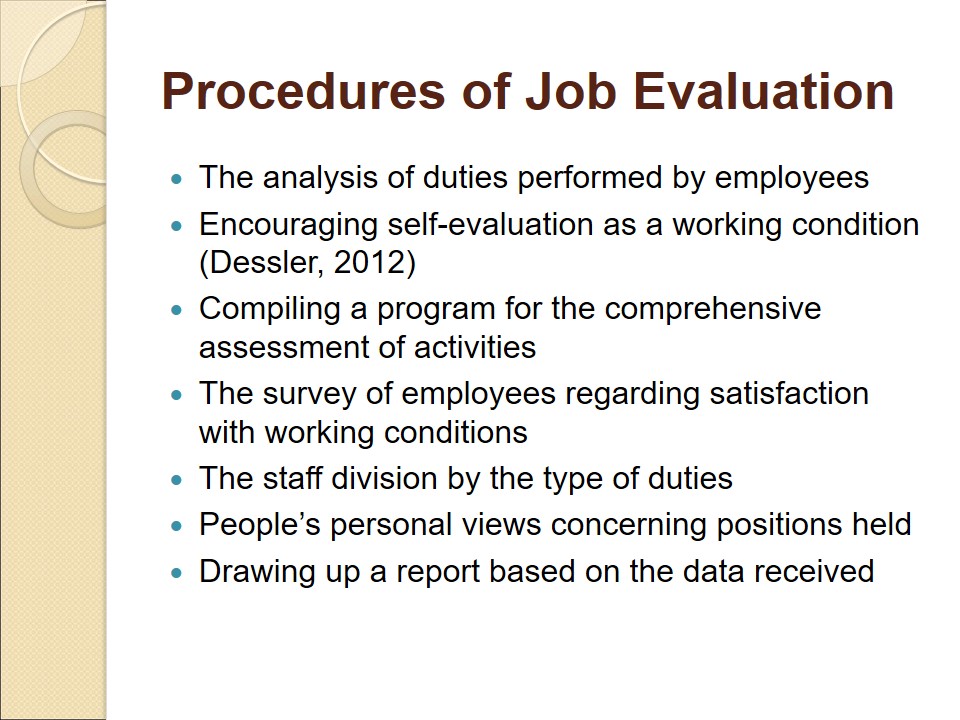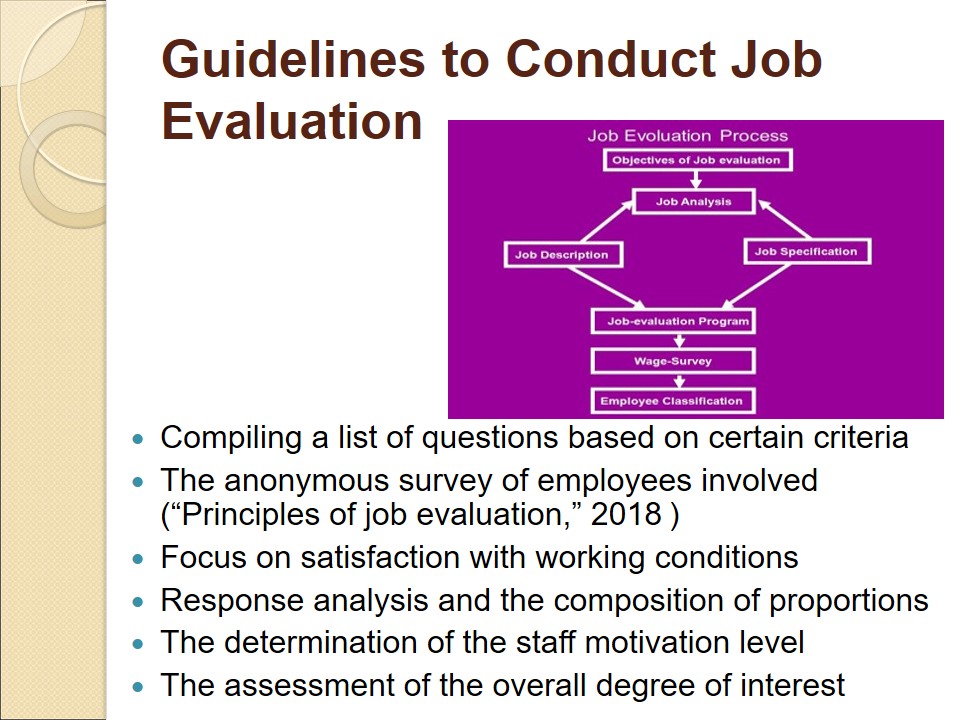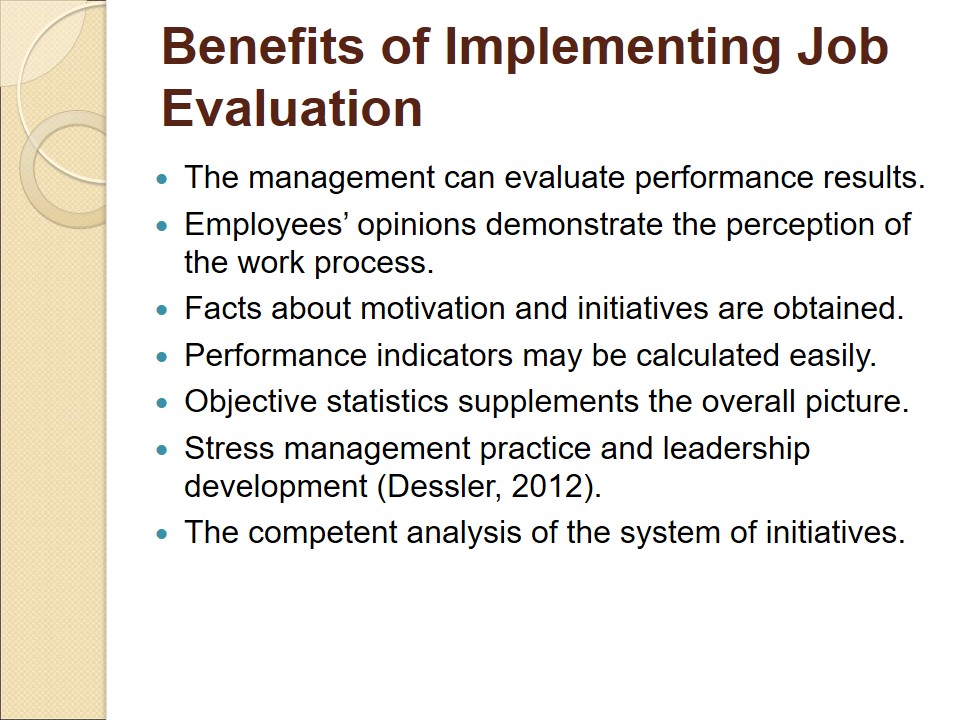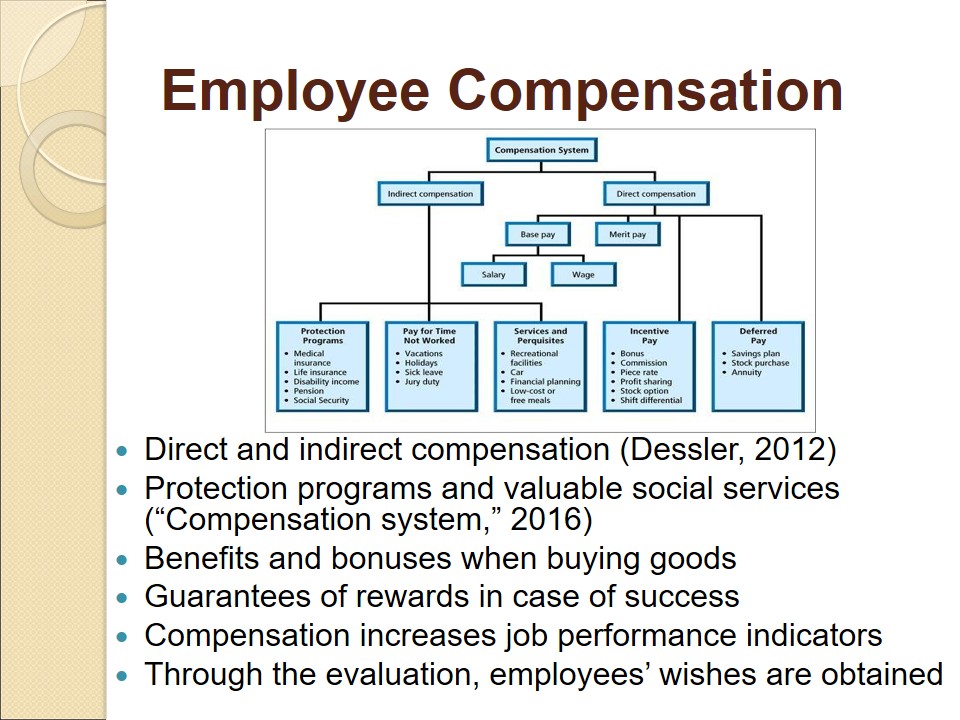Procedures of Job Evaluation
- The analysis of duties performed by employees.
- Encouraging self-evaluation as a working condition (Dessler, 2012).
- Compiling a program for the comprehensive assessment of activities.
- The survey of employees regarding satisfaction with working conditions.
- The staff division by the type of duties.
- People’s personal views concerning positions held.
- Drawing up a report based on the data received.
In order to conduct a comprehensive job evaluation procedure, it is required to involve employees in a relevant plan and to establish contact with the team. Self-evaluation is an essential factor that allows receiving the opinions of the staff concerning the positions held. In accordance with the duties performed by HR specialists in the Multitech Consulting Inc. company, it is possible to divide the personal into appropriate groups. At the end of the evaluation process, a report on the work done is compiled.

Guidelines to Conduct Job Evaluation
- Compiling a list of questions based on certain criteria.
- The anonymous survey of employees involved (“Principles of job evaluation,” 2018 ).
- Focus on satisfaction with working conditions.
- Response analysis and the composition of proportions.
- The determination of the staff motivation level.
- The assessment of the overall degree of interest.
Based on the features of a job evaluation plan, a list of questions should be compiled. It can include such criteria as the degree of satisfaction with the current working conditions, the interest in achieving the goals set, the quality of initiatives and incentives, and other crucial factors. Based on the data presented, it is required to compile a report, calculate the average score for the entire department, and identify the most frequent and rare responses. In accordance with the outcomes, it is possible to determine how the employees themselves understand the significance of their work in order to organize a favorable working environment effectively.

Benefits of Implementing Job Evaluation
- The management can evaluate performance results.
- Employees’ opinions demonstrate the perception of the work process.
- Facts about motivation and initiatives are obtained.
- Performance indicators may be calculated easily.
- Objective statistics supplements the overall picture.
- Stress management practice and leadership development (Dessler, 2012).
- The competent analysis of the system of initiatives.
Due to the introduction of the work evaluation process, a number of advantages may be obtained. The management of the company can count on objective data regarding employees’ satisfaction with the current working conditions. Also, performance indicators may be calculated in accordance with information on positions held and statistical reports. One of the most valuable evaluation criteria is an ability to manage stress and develop leadership qualities. Colleagues’ personal opinions make it possible to review the system of motivation and encouragement.

Employee Compensation
- Direct and indirect compensation (Dessler, 2012).
- Protection programs and valuable social services (“Compensation system,” 2016).
- Benefits and bonuses when buying goods.
- Guarantees of rewards in case of success.
- Compensation increases job performance indicators.
- Through the evaluation, employees’ wishes are obtained.
According to Dessler (2012), compensation may be of two types – direct and indirect. In the first case, financial motivation is most often implied – rewards, salaries, and other monetary incentives. In the second case, different social guarantees and services are provided to employees. Compensation makes it possible to increase performance indicators by raising the level of workers’ motivation. In addition, job evaluation allows determining the desires and interests of employees, and appropriate changes and additions can be made to the overall system of incentives to maintain a positive working environment among the staff.

References
Compensation system. (2016). Web.
Dessler, G. (2012). A framework for human resource management (7th ed.). Upper Saddle River, NJ: Pearson.
Principles of job evaluation [Image]. (2018). Web.